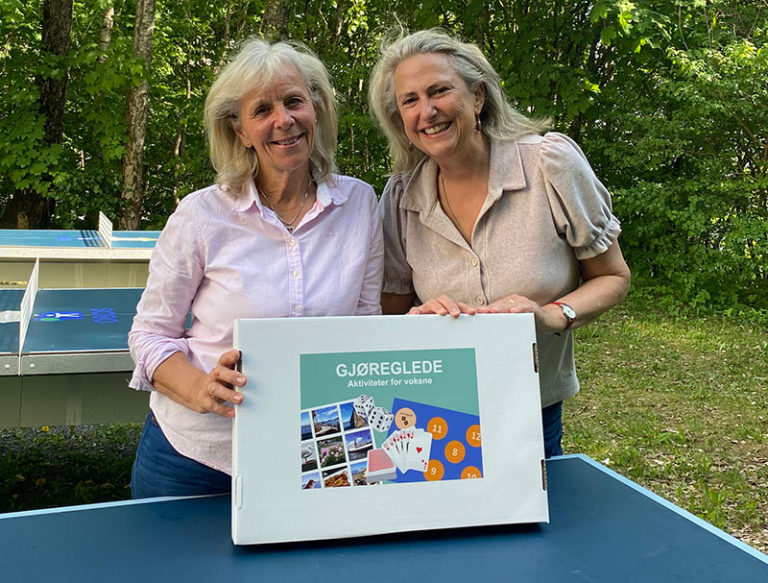Facing the Challenge of Good Nutrition as We Age
As a dietitian, I know the value of good nutrition from beginning to the end of our lives. There is no point in our lives that we can stop and rest on our laurels when it comes to eating well and being well nutritionally.
What I also know from experience working with many clients of all ages is that the physical results of poor eating habits will haunt us throughout our lives.
Research shows us clearly that when we are not making wise food choices it will impact our heart health leading to stroke and heart disease as well as contribute to several forms of cancer, diabetes and obesity. Chronic disease in our nation and actually globally has recently been defined by the World Health Organization as causing 6 out of 10 deaths around the world. The very sad reality of that statistic is that good nutrition is not that difficult and death from nutrition related chronic disease is preventable.
Aging Impacts on Nutrition
It is true that as we age, our bodies’ age too and our nutritional health can be affected.
Unfortunately, our bodies’ do not need any fewer nutrients as we age at a time when our intake tends to decline due to a number of factors.
• Difficulty chewing. Often our teeth become an issue that leads to food choices that are not the most nutritious. We may have missing teeth, dental caries or ill-fitting dentures which might be causing mouth sores that mean older adults begin restricting harder to chew items including protein foods and fresh fruits and vegetables. These foods are key nutrient sources that are hard to match when eliminated. There are many texture changes that can be made while still eating the healthy foods their bodies require.
• Perceived out of budget cost of nutritious foods. When older adults feel the pinch of a fixed income that may cause them to choose between medications, housing, electricity and food, they often tend to buy ‘cheaper’ food items like canned soup and ignore the fresh fruit and vegetables and meats that seem costly. Unfortunately they may be costing themselves poor health and more healthcare costs in the long term.
• Taste changes. Many older adults experience taste changes perhaps due to the many medications they take or dry mouth. They become disinterested in eating because it doesn’t taste like they remember or doesn’t bring them satisfaction.
• Lack of energy. Many older adults tell me that they tire quickly so don’t enjoy grocery shopping, food preparation or clean up so they look for ways to avoid it. They buy standard items like coffee, milk, bread and canned foods they can carry and then go home. They don’t want to cook for themselves and don’t enjoy eating by themselves. They don’t want to bother with the trouble. Many also tell me that they didn’t do anything during the day to work up an appetite which leads to further decreased intake. The result is a vicious cycle of weight loss, lack of energy, loose dentures and frailty leading to poor health outcomes.
• Restrictions of a medical condition. Many seniors have told me that over the years in order to follow different health messages they have become very restrictive in their food choices. They actually become afraid to eat food with fat or sugar or other “bad” foods. Unfortunately, many get to the point that they now are eating only a dozen items which limits the nutritional content of their diet resulting in poor nutrition and worsening of their medical condition. Often I end up telling them to forget following a diet and start eating to get calories, protein and nutrients that they are sorely missing.
• Dementia. Cognitive impairment that is progressive can lead to poor nutritional intake. As the memory loss worsens many older adults fight against meal time; become easily distracted by noise, patterns, smells, or other people nearby; forget how to use utensils or even how to chew and swallow; think they have already eaten; are unable to express desires of hunger and thirst and even to recognize them; allow agitation to inhibit intake; and eventually are not alert enough to eat. There are numerous strategies that a caregiver can employ to overcome food-related issues created by dementia. Many are quick fixes that can be accomplished easily.
Nutrient Needs for Aging
Seniors (all of us over 50) need calories to fuel our bodies to keep them functioning properly as well as give us plenty of steam to keep the machine working for all the activities we plan for the day.
Most seniors begin cutting down on portion sizes and even skip meals altogether at a time when calories are still needed and more importantly protein is needed to maintain strong muscles. Muscle wasting or sarcopenia in our seniors has become all too common resulting in falls and injuries from those falls.
Not eating enough or avoiding some foods could mean that an older person misses out on necessary vitamins, minerals and fiber too. Older adults need calcium and vitamin D for strong bones that could help prevent fractures. They need B vitamins especially B12 since it becomes more difficult to absorb as we age. Even with a diet rich in B12 your senior may need to talk with the doctor about a supplement. Potassium is also an important part of a healthy diet for seniors combined with reducing sodium will help manage proper blood pressure. Fiber is essential for good bowel health, relieve constipation in addition to benefiting many chronic diseases such as heart disease and diabetes. Let’s not forget water. Many older adults who are not fans of drinking plain water, who don’t want to go to the bathroom often or who don’t feel thirst simply don’t drink enough each day. Medications can also contribute to dehydration.
Eating more nutrient dense foods making every bite seniors eat count should be a focus of our overall health and treatment plan. It takes some thought and planning to find foods that are nutritious and delicious that provide a powerful punch of nutrients every day.
Ways to Get a Nutrition Punch!
• Drink water every time you use the restroom. Drink throughout the day especially if you are out in the heat or taking a medication that causes water loss.
• Add protein sources that are easy to eat such as scrambled eggs, egg salad, chick peas, beans, hummus, peanut butter, cottage cheese, Greek yogurt, protein fortified water, low fat milk, gelatin, smoothies, boiled meats, canned salmon or tuna, custard and puddings.
• Talk with your doctor about the potential need for B12, vitamin D or calcium supplements in case you can’t get enough in your diet.
• Add calorie sources if you are having trouble losing weight that will not increase the volume of food you need by using spreads, mayonnaise, sour cream, gravy, syrup, jelly, nut spreads as part of your recipes and on top of what you eat now.
• Consider a nutritional supplement in addition to your current meal plan NOT as a replacement of what you now eat. You may want to consider having a meal delivered each day if cooking is a problem. Not only will congregate senior programs deliver but local restaurants will too!
• Skip the ‘junk’ food like chips and Danish in favor of whole, healthy foods. You will see that they are not going to break your budget.
• Look for fortified foods that will give you more nutrition with each serving such as fortified orange juice, cereals, breads and other products with added calcium, vitamins and protein.
Eating should be a pleasurable experience not a battle ground. Caregivers can help their senior loved ones make a few changes and perhaps some wiser choices. Investigate reasons why they may not be eating as well as they could because there may be a way to correct it and get them back on the road to health so that they can enjoy each day to the fullest!
© 2014 By Kathy Birkett, RDN, this may not be preprinted without permission




